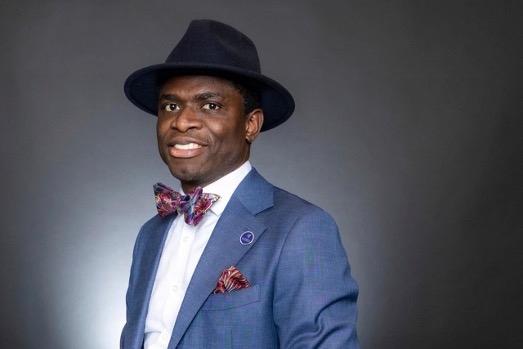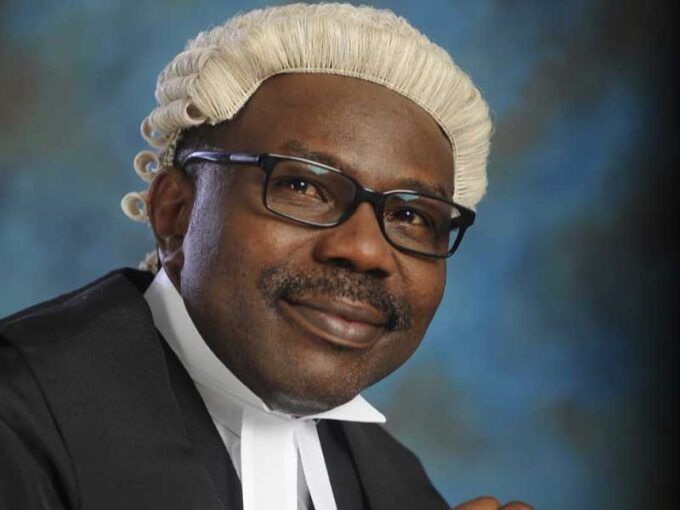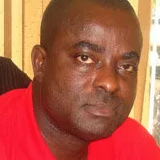A UK-based Nigerian healthcare expert, Dr. Tokunbo Fasuyi, wants to change the way Nigeria views medical tourism and healthcare in general, but first, he must rebuild trust. Vanessa Obioha writes
tI is not uncommon for wealthy Nigerians to seek medical care abroad rather than visit local hospitals. The reasons are not far-fetched — from systemic failures to poor infrastructure, the list is long.But what if quality healthcare doesn’t always require getting on a plane? What if you could have a guide to help simplify that journey?
This is where Dr. Tokunbo Fasuyi and his team at Aegis Private Health Consultant, a UK-based premier health concierge, come in. Aegis aims to serve as a guide to patients’ health, combining advanced telemedicine, global medical partnerships, and in-country specialist care to redefine what access to quality healthcare looks like. The vision, according to him, is to “set a global standard in healthcare experiences where excellence meets personalisation.”
“Aegis was born from a simple and powerful idea that everybody who leads at the highest level should not have to fight to stay healthy,” said Fasuyi. “They deserve health care that is proactive, personal and deeply human.”
Having worked in the UK for nearly two decades, Fasuyi has observed a recurring pattern: people who appear healthy on the outside but are slowly deteriorating because they ignore warning signs. He hopes to change that.
More importantly, he wants to challenge the belief that travelling abroad is the best route to good healthcare.
“There is this mindset back home that if somebody is trained abroad, that person is automatically better than people who train in Nigeria. I don’t believe that at all. I believe that it is both an inherent ability and the opportunity that one gets outside.”
Fasuyi, who studied medicine in Nigeria before pursuing postgraduate studies in the UK, maintains that Nigerian doctors are among the best in the world.
To change the perception that “abroad is always better,” he believes one fundamental issue must first be addressed — trust.
“Abroad seems better not because of the doctor’s skills but trust,” he said.
“Trust means that when I go to see a doctor, if it is malaria, it is malaria. It is not malaria with a touch of typhoid. If it’s typhoid, it is typhoid.”
He explained that patients’ scepticism often undermines treatment outcomes.
“There is that belief that until I have a particular treatment, I won’t get better. I’ve seen senior colleagues give people a placebo, which is basically nothing, but psychologically, the patient believed that they were getting something, and they got better. And we know there’s a place for that in medical practice, in a way that patient perception can affect the outcome of their health.”
Beyond trust, lack of access to information also strains doctor–patient relationships.
“When I say information, I mean to be able to ask your physician what is wrong with you, and to be involved in the treatment that you want to get from your physician.”
Many Nigerians who travel abroad for healthcare, he said, are not necessarily seeking more advanced medicine. They’re seeking doctors they can trust.
“A lot of the time, when they come abroad, they just want somebody that they can trust. That when they say, ‘This is what it is,’ that is what it is. Somebody they can communicate with and have a relationship with,” he said. “People who come abroad for treatment are just not looking for answers. They’re looking for quality information, like a Health Guide that can tell them what is going on and the options available. And also get them involved in the treatment. So that’s what Aegis is all about. It’s not just a service. It’s about personalised treatment. It’s high time people understood that when you come abroad, we are not just treating the condition but also the patient.”
In his opinion, not everyone needs to travel abroad for treatment.
“That’s the truth. They don’t need to; they just need somebody they can talk to, one that can guide them on what to do to make the best of their health.” He, however, understands that some people will not be easily persuaded not to come abroad, and that’s okay.
The best medicine, as they say, starts with trust. And Fasuyi is hoping to build that in patients by first of all putting value in everything they do. From the conversations to the explanations.
“Over the years, what I realised is that when you take out time to explain to people what the issue is, it helps,” he explained. “In the UK, for instance, the consultation room is arranged so there’s no power disparity between doctor and patient. In Nigeria, doctors often sit across the table like authority figures. That setup already creates a distance.”
For Fasuyi, human connection plays a vital role in building trust in patients.
“You want to truly connect with the patient as a human being before you start to talk about their problem. You want to fully understand and connect with their feelings. You also need to be honest and transparent. There should also be active listening. You want to be able to give patients room to express themselves without being judgmental. As a doctor, you want to be able to help your patients make informed decisions.”
Overall, Fasuyi believes that health is wealth, and Nigerians must learn to prioritise preventive care over reactive responses.
“We need to go from being reactive to being proactive. I’m sure you know that a lot of the time, our access to healthcare is usually reactive. Something has gone wrong, and then, when it’s almost really bad, people start looking for help. So people need to stop waiting for illnesses to strike before they seek care. They need to be responsible and take ownership. They need to embrace what we call preventive health. Why? Because when diseases are picked up on time, it is easier, cheaper, and better treated. Early intervention saves a lot.”


















Leave a comment